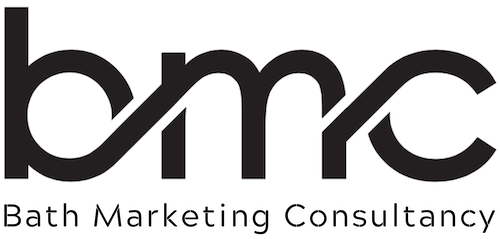Search Engine Optimisation (SEO) is the process of improving your website so that it ranks higher in search engine results for relevant keywords and phrases. When done effectively, SEO helps your business become more visible online, attract more visitors, and convert traffic into leads or sales.
At Bath Marketing Consultancy, we believe SEO should be a key component of your digital strategy, and not just a one-off task. It’s a combination of content, structure, and consistency — and it’s something that evolves with your market.
Here are 8 tried-and-tested SEO tips from our team to help get your site performing more effectively:
1. Create Original, Relevant Content
Search engines prioritise fresh, original content that adds value. Regularly publishing unique articles, blog posts, product reviews or thought leadership helps attract organic backlinks and builds trust with both users and search engines.
2. Keep Content Updated
Websites that are regularly updated with new content tend to rank better. This could be in the form of blog posts, news updates, or even minor tweaks to existing pages — the key is to stay active.
3. Keyword Research is Essential
Before creating content or optimising your site, identify the right keywords to target. These should align with what your audience is searching for and can be researched using tools like Google Search Console or third-party platforms. Build content and meta data around them.
4. Include a Sitemap
A sitemap helps search engines easily crawl and index your website. It also improves user experience by helping visitors navigate to key areas of your site. Linking to your sitemap from your homepage is best practice.
5. Avoid Over-Reliance on Flash or JavaScript
Websites built entirely in Flash or heavy JavaScript are difficult for search engines to index. A solid HTML structure with clean, crawlable links between pages ensures better visibility in search results.
6. Ensure W3C Compliance
Adhering to World Wide Web Consortium (W3C) standards helps reduce errors in your code and ensures a more consistent experience across browsers. It can also improve how search engines read your pages.
7. Optimise Title Tags
Your page titles are one of the most important SEO elements. Each page should have a unique title that includes your target keywords and reflects the page’s content clearly and succinctly.
8. Build Backlinks Strategically
Backlinks remain a vital part of SEO, but they must be earned organically. Avoid link farms or programmes that promise hundreds of backlinks overnight. Google and other engines can detect unnatural activity, and your site could be penalised — something we’ve unfortunately seen before with new clients coming to us after poor past experiences.
Final Thoughts
SEO is not just about rankings — it’s about building long-term digital authority. Working with a partner like Bath Marketing Consultancy ensures your SEO strategy is not only technically sound but commercially driven. If you’re not already optimising your digital footprint, now’s the time to start.



